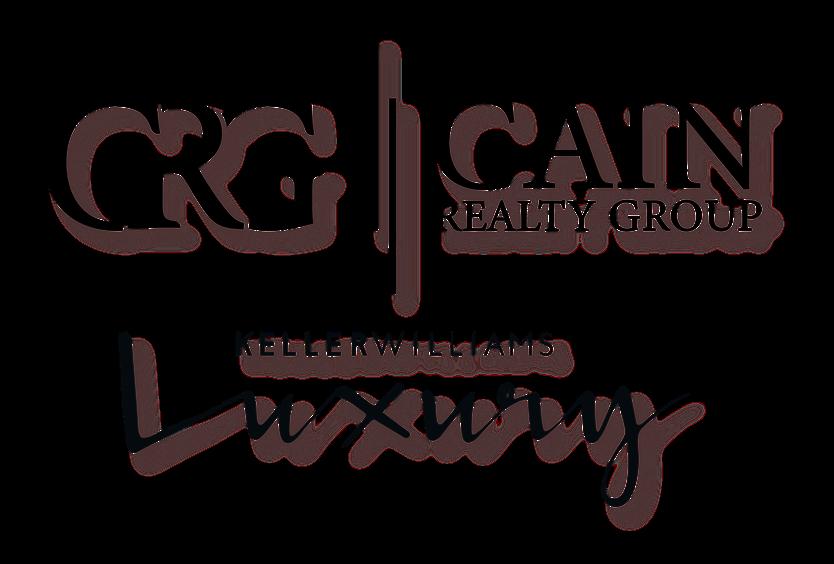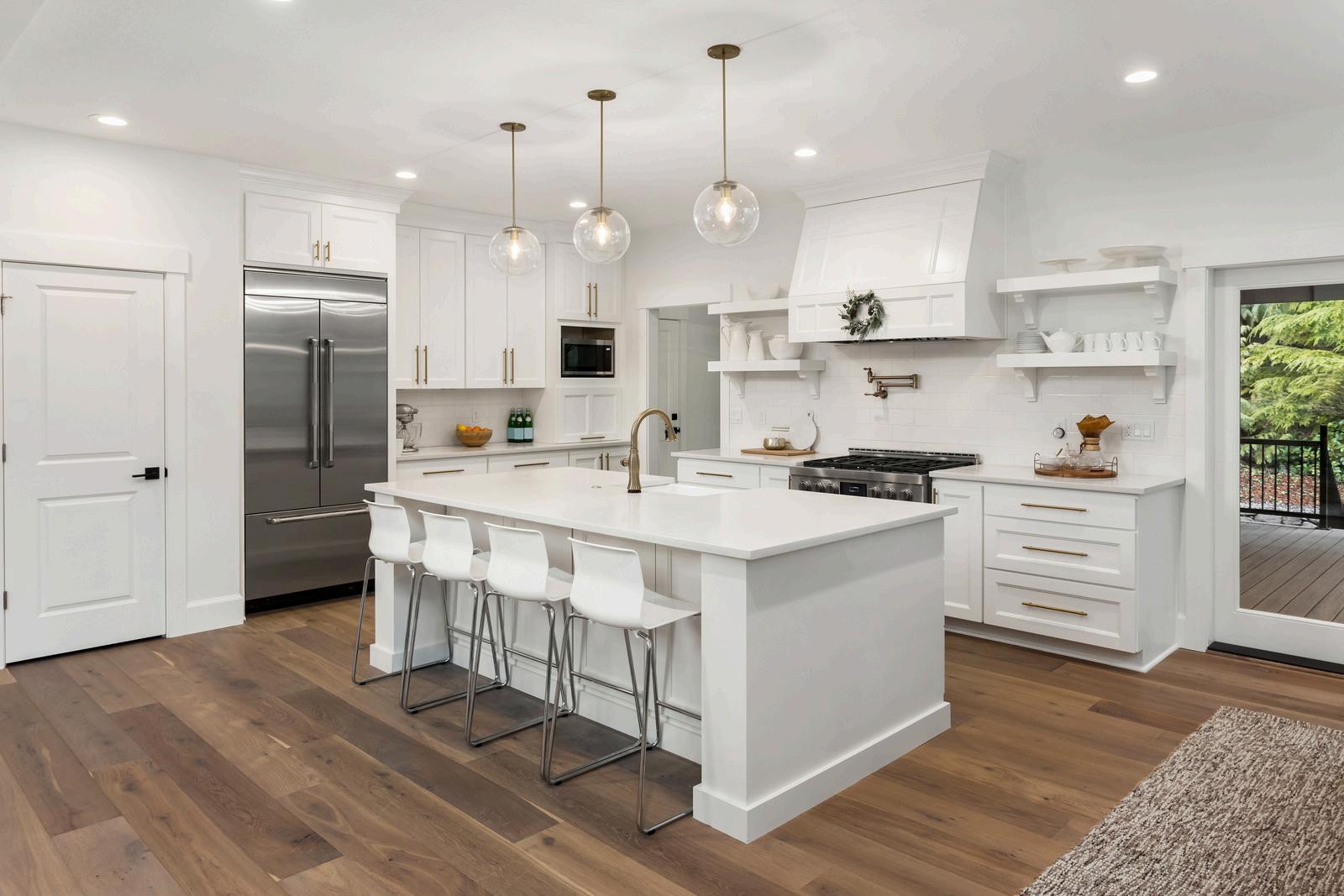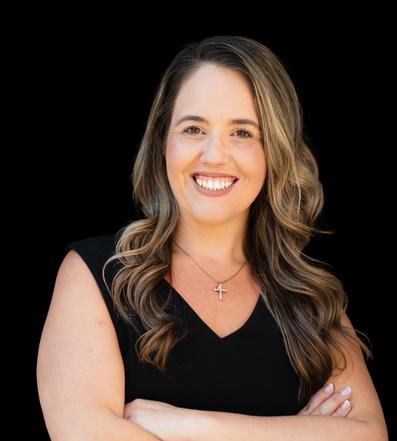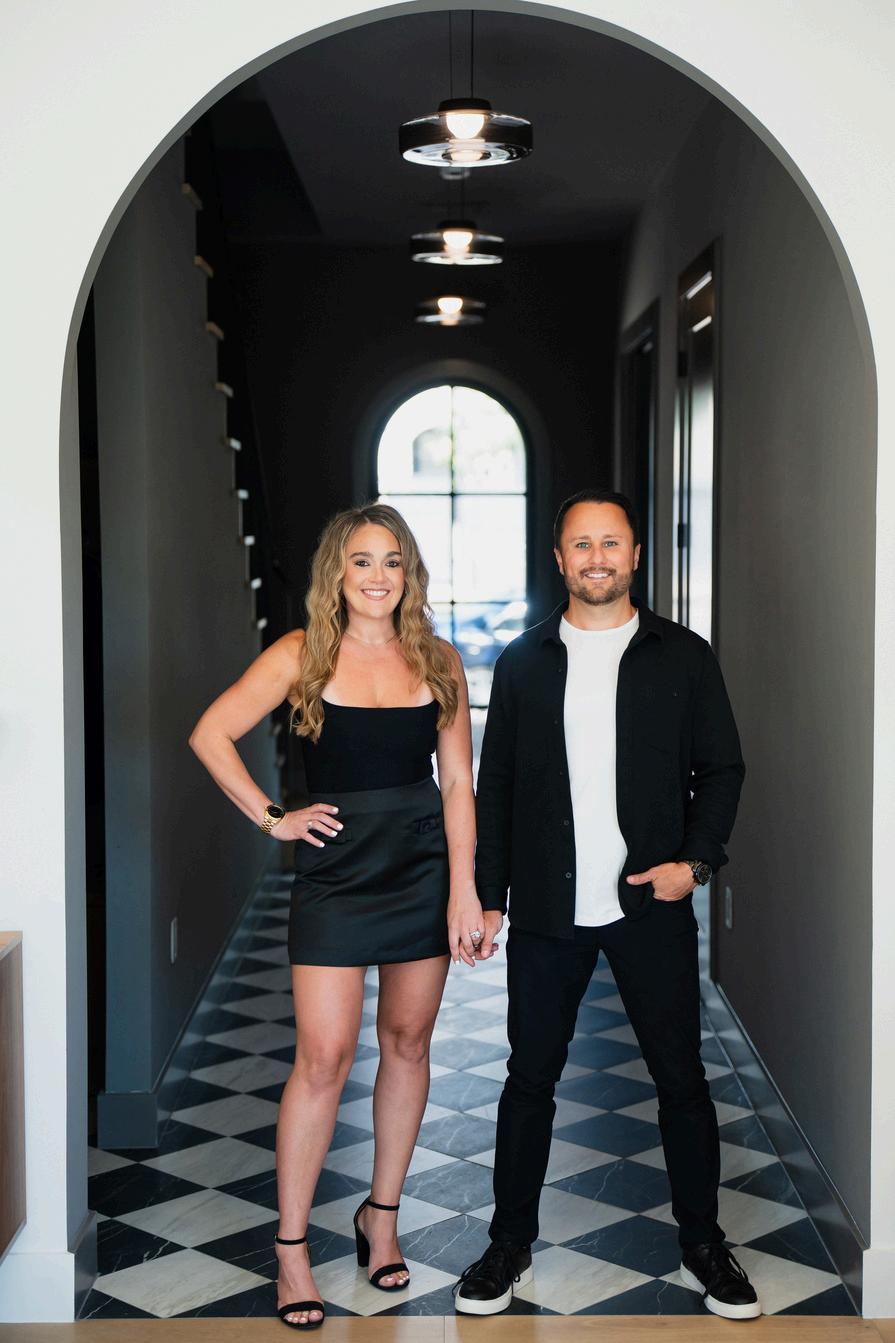





Thank you for choosing to put your trust in me for the process of buying a home. Every member of my team is committed to ensuring that ALL of your real estate needs are not just met but exceeded! I’ve created this book for your convenience, and we hope that it will be a valuable resource. While the entire process is outlined for you here, please know that I will be staying in constant contact with you throughout the process. Your experience will be unique, and I will adjust our service to fit your needs. My focus is on you having a 5-star experience and delivering on our CRG Promise.

We’ll narrow down the homes that fit your unique wants and needs and get you in the door! I also routinely have access to offmarket properties that other buyers don’t even know about
From negotiating the initial contract to inspection and appraisal negotiations, I will be your guide and handle these requests with the sellers and seller’s Agent
Buying a home involves many types of documentation I have the experience and knowledge to navigate real estate contracts Ensuring that nothing is overlooked and that you truly understand what a paper means before ever signing.
Working daily in neighborhoods with inspectors, contractors, and negotiating with sellers, I have the market knowledge you need to get the best results from your purchase Understanding the local real estate market can go a long way when it comes time to make an offer on a house.
I will work hard to protect your interests and address any issues that may arise throughout the entire process I hope to make buying a home a fun and stress-free process

JOHNJohnRusbasanwasborninNewYorkCitybut spentmostofhisformativeyearsinSurrey, England HebeganhiscareerworkingforanonprofitinLancaster,PA,thentransitionedintotech salesrecruitmentbeforeultimatelyfindinghis passioninrealestatesales.
DrawntoAustinforitsvibrantcommunityandeasy accesstotheoutdoors,Johnloveslivinginacity wherehecan“touchgrass”everydaywhilemaking apositiveimpactonthepeoplearoundhim Witha strongbackgroundinphonesales,he’sexcitedto bringhisskillstothepersonal,relationship-driven worldofrealestate
Outsideofwork,Johnisanavidgolfer,CrossFitter, andRubik’sCubesolver Heenjoysspendingtime onthegolfcourse,stayingactive,soakingupthe sun,walkinghisdogBella,andmakingthemostof timewithfriends

Nancy-MarieRuizisalicensedRealtor® andtheClientExperienceManagerfor TheCainRealtyGroupatKellerWilliams, bringingmorethan17yearsofcombined front-andback-endrealestateexpertise inbothCaliforniaandTexas
Hermissionistoempowerpeoplewith education,guidance,andindustry insightsotheycanbuildwealththrough realestate whetherthey’rebuying theirfirsthome,relocating,orinvesting inproperty.
WithNancy-MarieandtheCainRealty Group,clientscanexpecta10/10homebuyingandsellingexperience,genuine partnership,andateamthatisfully investedintheirsuccessbefore,during, andlongafterclosing


With over 60 years of combined real estate experience, everyone at Cain Realty Group has the knowledge, systems, and resources to ensure everyone working with CRG to buy, sell, or invest in Greater Austin area real estate becomes a raving fan. We also believe success leaves clues, resulting in referrals and repeat clientsbeingournumberonesourceofbusinesssince2007.
Each CRG Agent and staff member was hand-selected for having a servant's heart and aligning with CRG's Core Values of Faith, Growth, Integrity, Passion, and Loyalty You'll instantly recognize these values from your first conversation withaCRGer.
Leading CRG are Ricky and KodiKay Cain, two of the most sought-after and successful REALTORS® to hold a real estate license in Texas. Their leadership servesastheGPSforallthingsaswecontinuetolearn,improve,andgrow.







Sure, there's being financially ready to buy a house, but are you emotionally ready? Even if it's just going to be your starter home, you're making a big financial commitment and putting down some roots
You'll want to think about your other goals for the next few years Are you buying with a partner, and if yes, are you on the same page when it comes to money? Is there any chance you'd need to relocate for work? Are you thinking of starting a family?
These big-picture questions can add to the pros (or cons) of whether this is the right time to buy a house
WONDERING IF YOU SHOULD BUY A HOUSE? LET’S LOOK AT SOME OF THE FACTORS THAT LENDERS AND HOMEOWNERS ALIKE SHOULD CONSIDER.
Your lender won’t just want to see how much money you make They’ll also want to see a work history (usually about 2 years) to make sure your income source is stable and reliable
Preparing your income is all about pulling the right documentation together to show steady employment If you’re on the payroll, you’ll likely just need to provide recent pay stubs and W-2s On the other hand, you’ll need to submit your tax returns and other documents the lender requests if you’re self-employed
Debt-to-income ratio (DTI) is another financial instrument mortgage lenders use to evaluate your loan application Your DTI helps your lender see how much of your monthly income goes to debt so they can evaluate the amount of mortgage debt you can take on
DTI is calculated by dividing your monthly debt by your gross monthly income For example, if your monthly debts (credit card minimum payments, loan payments, etc) total $2,000 per month and your gross monthly income is $6,000, your DTI is $2,000/$6,000, or 33% Your lender will use the debts shown on your credit report to calculate your DTI
Depending on the type of loan you’re applying for, your lender may also calculate your housing expense ratio, also sometimes referred to as front-end DTI This is a ratio that looks at your total monthly house payment (principal, interest, taxes and insurance) compared to your monthly income For example, if you have a $1,200 house payment and the same $6,000 monthly income, your housing expense ratio is $1,200/$6,000, or 20%
It’s smart to review your DTI before you apply for a loan In most cases, you’ll need a back-end DTI of 43% or less to qualify for the most mortgage options, although this number varies based on your lender, loan type and other factors
Your credit score plays a huge role in what loans and interest rates you qualify for Your credit score tells lenders how much of a risk you are to grant a loan
Taking steps to improve your credit score and reduce your debt can pay off big as you prepare to get a mortgage Better numbers mean better loan options with lower interest rates
Your credit score is based on the following information:
Your payment history
The amount of money you owe
The length of your credit history
Types of credit you’ve used
Your pursuit of new credit
What score will you need to qualify for a home loan? Most lenders require a credit score of at least 620 to qualify for the majority of loans A score above 720 will generally get you the very best loan terms
Deciding whether it’s a good time to buy a house or not depends on a variety of personal factors (such as financial readiness and lifestyle preferences) and market conditions (such as economic health and current mortgage rates)
Ultimately, the right time to buy a home comes down to your own unique situation Be sure to consult a financial expert before making any big financial decisions such as buying a house


Once you decide you’re ready to buy a home, it’s time to set a budget A good place to begin is by calculating your DTI ratio Look at your current debts and income and consider how much money you can reasonably afford to spend each month on a mortgage
Homeownership comes with several costs you don’t need to worry about while renting You’ll need to pay property taxes and maintain some form of homeowners insurance Factor these expenses into your household budget when you decide how much you can afford on a house
Mortgage lenders consider DTI an important qualifying factor The amount of debt you have is considered a very reliable predictor of the risk associated with the approval of any mortgage loan Therefore, it’s important to know your numbers
Step 1: Add Up All Of Your Monthly Debts
Your debt payments could include:
Monthly rent or house payments
Monthly child support payments or alimony
Student loan payments
Car payments
Monthly credit card minimum payments
Any other debts you might have
You don’t need to add in:
Grocery bills
Utility bills
Taxes
Any other bills that may vary month to month
Step 2: Divide Your Monthly Debts By Your Monthly Gross Income
Next, do a simple calculation For example, let’s say your debts add up to $2,000 per month If your monthly gross income (your before-tax income) is $6,000 per month, then your DTI ratio is 033, or 33%
There are many ways to save for your home purchase, including through investments and savings accounts If you have relatives who are willing to contribute money, you may be able to use gift money toward your down payment (in which case, be sure to provide your lender with a gift letter)
But how much do you need to save before buying a home? Let’s look at some of the major expenses related to the purchase, and how much you might want to save for them

Your down payment is a large, one-time payment toward the purchase of a home Many lenders require a down payment because it mitigates the loss they might suffer in the event that a borrower defaults on their mortgage
Many home buyers believe that they need a 20% down payment to buy a home This isn’t true Plus, a down payment of that size isn’t realistic for many first-time home buyers
Fortunately, there are many options for buyers who can’t afford a 20% down payment For example, you can get a conventional loan for as little as 3% down Federal Housing Administration (FHA) loans have a minimum down payment of 3.5%. Department of Veterans Affairs (VA) loans and United States Department of Agriculture (USDA) loans even allow eligible and qualified borrowers to put 0% down.
There are advantages, however, to making a larger down payment. For one, it typically means you’ll have more mortgage options. It also usually means you’ll have a smaller monthly payment and a lower interest rate. Plus, if you put at least 20% down on a conventional loan, you won’t need to pay for private mortgage insurance (PMI).
You’ll also need to save money to cover closing costs – the fees you pay to get the loan. There are many variables that go into determining how much you’ll pay for closing costs, but it’s usually smart to prepare for 3 – 6% of the home value This means that if you’re buying a home worth $200,000, you might pay $6,000 – $12,000 in closing costs.
The specific closing costs will depend on your loan type, your lender, and where you live. Almost all homeowners will pay for things like appraisal fees and title insurance If you take out a government-backed loan, you’ll typically need to pay an insurance premium or funding fee upfront.
Before you close on your loan, your lender will give you a document called a Closing Disclosure, which lists each of the closing costs you need to cover and how much you’ll need to pay at closing Look over your Closing Disclosure carefully before you close to know what to expect and to catch any errors.



Before you can apply for a mortgage, you’ll need to decide what the best type of loan is for you and which one you’ll qualify for.
Conventional loans are mortgages made by a private lender and not backed by the government. The most common type of conventional loans are loans that are backed by Fannie Mae or Freddie Mac, sometimes called conforming loans. The majority of mortgages in the U.S. are conventional loans. Conventional loans are always a popular option for home buyers, and you can get one with as little as 3% down.
Backed by the Federal Housing Administration, FHA loans are less of a risk for lenders because the government insures them if you stop making payments. As a result, FHA loans have credit score requirements that aren’t as strict. You can get an FHA loan with a down payment as small as 3.5%.
Backed by the Federal Housing Administration, FHA loans are less of a risk for lenders because the government insures them if you stop making payments. As a result, FHA loans have credit score requirements that aren’t as strict. You can get an FHA loan with a down payment as small as 3.5%.

When you’re ready to start house hunting, it’s time to get pre-approved for a mortgage. When you apply, your lender will give you a pre-approval letter that states how much you’re approved for based on your credit, assets, and income. You can show your preapproval letter to your real estate agent so they can help you find homes within your budget.
To get pre-approved, you need to apply with your lender. The preapproval process typically involves answering questions about your income, assets, and the home you want to buy.
Pre-approvals are a dress rehearsal for your mortgage and are necessary to make a serious offer on a home. They typically expire after 90 days and can be refreshed if you don’t find the home you’re looking for in that time.
Know that pre-approvals don’t guarantee your mortgage approval or interest rate. After you’re pre-approved, avoid opening new credit lines or making large debt payments that can impact your FICO score.
Working with a lender to get pre-approved for a mortgage is an important step in accurately determining your budget. A mortgage preapproval will give you real numbers since the lender will have detailed info about your finances. That includes a hard inquiry, which will show up on your credit report. The good news is that if you apply with multiple lenders around the same time, it'll only count as one hard pull.
We’ve referred our friends, family, and clients to Silvia Ward with CMG Home Loans and always receive rave reviews from everyone she has served. You can apply for a mortgage here, or simply contact her using the information below.
Silvia Ward - 512-791-6332 | silviaw@cmghomeloans.com


A Buyer’s Agent is a real estate professional representing your interests throughout the home-buying process Unlike a Seller’s Agent, who works for the seller, a Buyer’s Agent is dedicated to helping you find the right home, negotiate the best terms, and ensure a smooth transaction
A Seller’s Agent is a real estate professional who represents the seller’s interests throughout the home-selling process Their primary goal is to help the seller achieve the best possible sale price and terms. They handle marketing, negotiations, and transaction management to ensure a smooth selling experience.
This is all outlined in our 101 Home Buyer Success Plan featured in this guide!
There are various ways for a Buyer’s Agent to be compensated This can include compensation from the Seller’s Broker, the Seller, the Buyer, or a combination of these sources The next page will go into this in further detail
A buyer representation agreement outlines our working relationship, including services provided, compensation, and duration. It ensures clarity, transparency, and protection for both parties Laws prohibit REALTORS® from showing homes without a written agreement
Delivering on our CRG Promise and exceeding your expectations are my top priorities If you have concerns or are not satisfied with my services, please let me know immediately We can discuss the issues and find a resolution In the unexpected event that we cannot find a resolution, you may cancel our agreement by providing notice to me in writing. There are no cancellation fees or fines in our agreements.

Inthisscenario,thesellerhasagreedtopayfullcompensationtoboththeiragent andtheBuyer’sAgent Thisarrangementisoftenincludedintheproperty’slisting agreement Wediscoverthecompensationbeingofferedonanyhomesourclients areinterestedinwritinganofferonandsometimesbeforeseeingahome, dependingonclientpreference
Therearenoadditionalout-of-pocketcostsforyouasthebuyersincetheseller coversthecompensationforyourAgent.Thisensuresyoureceivefull representationwithoutanyextrafinancialburden.
Inthissituation,thesellerofferstheBuyerAgentlessthantheagreed-upon compensation.Thismayoccurundercertainmarketconditionsorspecificlisting agreements.Inthisscenario,wewillattempttonegotiatewiththeSellertoreceive ourfullcompensation.
IfwecannotnegotiatethedifferencewiththeSeller,youmayneedtocoverthe differenceincompensation.Therearealsootherwaystonegotiatethedifference onasalescontract,suchashavingthesellercredityouthroughclosingcosts and/orraisingtheamountofthepurchasecontracttocoverthedifferenceto avoidmoreout-of-pocketexpenses.
Sometimes,asellermaynotoffertocompensatetheBuyer’sAgent.Eveninthis scenario,weattempttonegotiatewiththeselleroruseoneoftheotherstrategies mentionedabove.Thiscanbemorecommonwhenwefindyouafantasticdealon apropertynotcurrentlylistedintheMLS.
Ifwecannotnegotiatecompensationfromtheseller,youwillcompensateyour BuyerAgentdirectly Regardlessofthescenariothatpresentsitself,wewillensure youseeatonofvalueinourservices.


We’ve been exceeding expectations and delivering on our CRG Promise since 2007, and we have developed a very specific and intentional 151-step process of helping our home-buying clients secure a great home at a great price. Once we decide to work together, the next page will cover the actions we will take to deliver you the results you are looking for.

1. Initial intake call to review your wants, needs, communication style & questions.
2. Connect you with lenders to understand financing options & to get pre-approved.
3. Provide a copy of this CRG Home Buying Guide.
4. Meet at the office or virtually to conduct a CRG Home Buying Strategy Meeting to review the real estate market, identify the pros and cons of areas, review expectations, cover the overall home-buying process, and ensure no question goes unanswered
5. Review differences between Broker relationships with a buyer, seller, and intermediary.
6. Review and sign the Buyer Representation Agreement, which is legally required to see homes with a REALTOR®.
7. Explain how we are compensated as a Buyer’s Agent.
8. Set up a custom-tailored VIP MLS Portal that will constantly alert us to new homes that match your criteria.
9. Review listings in MLS regularly, present potential matches, and make comments about properties and areas on your VIP Portal.
10. Research and find off-market opportunities through various online portals, Agent connections, and private social media groups.
11. Research and identify any homes that could be a match within the CRG database.
12. Research and identify any homes that had expired in the past and didn’t relist.
13. Contact homeowners in target neighborhoods to see if they’ve considered selling.
14. Preview potential options beforehand when possible.
15 For homes you are interested in, send all available listing information to you, including home details, floorplans, any updates, disclosure forms, etc
16 Coordinate and schedule showings around your schedule
17. Connect with Agents of possible properties to verify details, questions, Agent compensation and get background on the seller's wants & timeline.
18. If you attend open houses solo, connect with you for feedback & follow-up questions.
19. If you attend open houses solo & are interested in an offer, schedule a visit ourselves when possible.
20. Make direct appointments with brokers, agents, and sellers to view homes.
21. Connect with the Listing Agent for details on offer deadlines & any insider info on other offers.
22. Research comparable properties in the marketplace to determine the optimal offer price.
23. If new home construction, obtain sales data for properties not in MLS.
24. Discuss the offer price and terms (key dates, contingencies, offer levers, etc.) with you.
25. Review the Seller’s Disclosure and give additional feedback if needed.
26. If there’s a property survey, review it to determine whether or not it would be acceptable to your Lender.
27. Walk you through all Offer Documents prior to signing. We want you to understand everything
28 Send a copy of the listing and tax information to your Lender
29. Obtain an updated pre-approval letter from the loan officer to submit with the offer (if applicable)
30. Coordinate signatures of the offer and any relevant documents & disclosures.
31. Draft a cover letter to the Listing Agent highlighting the positive aspects of the offer and working with Cain Realty Group.
32. Present the offer package to the Listing Agent via email & follow up to confirm receipt.
33. Connect your lender with the listing agent to help strengthen your offer.
34. Negotiate on your behalf to win the offer.
35. Once accepted, send the official fully signed offer and the next steps.
36. Coordinate the depositing of the earnest money deposit and option fee with the title company.
37. Notify the lender that the offer has been accepted & provide all relevant documents (if applicable).
38 Introduce all back-end parties via email to kick off the transaction
39 Once the receipted contract has been received, send everyone a copy
40 Keep the MLS Portal open until after the Option Period has passed
41. Initiate our CRG Client Roadmap to allow you to see what’s happening on the backend and what's next within the homebuying process.
42. Schedule and conduct a video call with your Client Experience Manager, who will assist with the process's backend.
43. Discuss the purpose of the inspection, which is to identify any large-cost items that are broken, and look for potential safety or structural issues.
44. Get a temperature check on how we are doing so far on our CRG Promise!
45. Hopefully, we receive a referral of someone you know that we can serve.
46. Confirm with the Listing Agent that utilities are all on for inspection.
47. Identify what inspections to recommend based on the property’s offerings.
48. Provide recommended inspectors for the type of inspections needed.
49. Update the CRG Client Roadmap to reflect inspection dates and times.
50. Provide time on the inspection day for you to have one-on-one time with the inspector to go over the inspection summary at the property.
51. Ensure the inspector has property access information, codes, etc.
52. Pass along links to permitting sites should inspector recommend to investigate.
53. Review inspection to determine what potential issues need to be remedied.
54. Speak with the Listing Agent regarding potential issues and get additional clarification on items if needed.
55. Explain the strategy of concessions versus having the seller make repairs.
56 If needed, collect bids from contractors to determine a concession amount
57 Put together a repair amendment to present to the Listing Agent
58. Negotiate any potential counters from the amendment.
59. Once all parties sign the amendment, provide it to the title company and lender.
60. Communicate the next steps while constantly updating your CRG Roadmap.
61. Contact Lender to let them know it’s OK to order the appraisal.
62. Alert Listing Agent to appraisal day and time and confirm acceptance if occupied.
63. Continue to update your CRG Roadmap.
64. Check in with the Lender weekly to ensure everything is on track.
65. Review appraisal to ensure the square footage measured as marketed.
66. In the event the appraisal comes back short, negotiate with the Listing Agent.
67. Provide referrals for vendors such as home security, moving companies, etc.
68. Provide a list of utility providers and remind you to initiate service.
69. Ensure the Seller has initiated utility disconnects to avoid potential startup fees.
70. Obtain paid receipts for any work that the Seller was required to complete.
71. Communicate final loan approval to the Listing Agent. (if applicable)
72 Confirm the closing date and time, and notify all parties
73 Schedule the title company or a notary to have a closing held at our CRG office
74 Schedule a final walk-through of the property (typically day before or the day of your closing).
75. Send you the final closing reminders.
76. Review closing disclosure to ensure all items align with the contract.
77. Review the title commitment to ensure no additional liens on Schedule C.
78. Attend the final walkthrough with you on the day of closing or prior day.
79. Confirm everything is in the same condition as it was when we last saw the home and that repairs are complete.
80. If any issues arise, communicate with the Listing Agent to have them resolved before you sign the closing documents.
81. Ensure we are able to close at our beautiful office, and even personally pay for a Notary to come if the title company cannot.
82. Confirm day and time of the seller’s signing and transaction funding date.
83. Obtain keys and access instructions to be delivered after funding.
84. Confirm funding with the title company and call to congratulate you!
85. Coordinate the pickup of the sign and lockbox with the Listing Agent.
86.Keepasecurerecordofallcommunicationsandtransactiondocuments.
87.AttachrelevantdocumentstoyourCRGRoadmapforeasyfutureaccess.
88.Iftherewasaleaseback,walkthroughthepropertyoncevacant.
89.Ifwalkthroughissuesarise,figureoutsolutionswiththeListingAgent.
90.Helpwithrefundingofanyleasebackdeposittotheseller/tenant.
91.Provideyouwithalinktoourproviderandcompanydirectory,Cain’sList.
92.Sendyouaremindertofileanyrelevantexemptionstosaveonpropertytaxes.
93.Remindyoutofileachangeofaddressifthehomepurchasedisyourprimary.
94.OurClientConciergewillcalltointroducethemselvesandcheckin.
95.Call,email,andtextinadvanceofanyofourexcitingclientgiveaways.
96.Call,email,andtextwithinvitestoourannualclientevents.
97.RemindyouaboutourLoveitorLeaveitProgram.
98.Sendyoumoreinformationaboutournon-profit,CainCares.
99.Wewillremindyouoftheimportanceofrenewingyourhomewarranty.
100.Provideyouwithanydataneededtoprotesttaxevaluations.
101.Wewillbeonstandbyandreadytosupportanyofyourfriends,co-workers, neighbors,orfamilymemberswiththeirrealestateneeds. Therearenumerousotherthingswedo,andeachtransactionisdifferent!But pleaseknowthatourjobistosupportYOUandbeyourpartnerinyourpathto homeownershipwhiledeliveringonourCRGPromise:toprovidea5-star experiencethatwillexciteyoutoreviewusonlineandreferustothosewhohavea realestateneedorquestion.



Make a list of the things you'll need to have in the house. Ask yourself how many bedrooms and bathrooms you'll need and get an idea of how much space you desire. How big do you want the kitchen to be? Do you need lots of closets and cabinet space? Do you need a big yard for your kids and/or pets to play in?
Once you've made a list of your must-haves, don't forget to think about the kind of neighborhood you want, the types of schools in the area, the length of your commute to and from work, and the convenience of local shopping. Take into account your safety concerns and how good the rate of home appreciation is in the area

ONCE YOU HAVE COMPILED YOUR PRELIMINARY WISH LIST, THE NEXT STEP BEFORE MEETING WITH ME IS TO COMPLETE OUR CRG HOME-BUYING QUESTIONNAIRE.
BY TAKING A FEW MINUTES TO COMPLETE THIS QUESTIONNAIRE, I’LL HAVE THE INFORMATION I NEED TO PREPARE FOR OUR BUYER STRATEGY MEETING. THANKS IN ADVANCE FOR FILLING IT OUT!
ARE YOU A SEASONED HOME BUYER WHO DOES NOT WANT TO GO THROUGH ALL THE HOME-BUYING STEPS?
CLICK HERE TO GO TO THE END OF THIS GUIDE, LEARN MORE ABOUT THE VALUE WE PROVIDE AFTER CLOSING, AND VIEW MORE OF MY TESTIMONIALS!
When it’s time for your home tour, check the features against the checklist you made. Do you need to reevaluate any of your musthaves?Feelfreetoprintoutorsavethehandyhomefeedbackform that’sfeaturedonthenextpage! Getafeelforthehomeandconsideranythingyoumayhaveleftoff of your list. Remember, paint can be replaced, and staged furniture willchange,butthereareaspectsthatcan’tchangesoeasily:
IS THERE ENOUGH SPACE OR TOO MUCH SPACE?
WHERE COULD YOU USE MORE SPACE?
HOW WOULD YOU DESCRIBE THE LAYOUT?
DO YOU LIKE THE FIXTURES AND FINISHES? ARE YOU HAPPY WITH THE WINDOWS (ENOUGH NATURAL LIGHT, WELLPLACED, TOO SUNNY)? DOES THE HOME HAVE CURB APPEAL? DOES THE HOME HAVE ADEQUATE PARKING?

DATE VIEWED:
TIME OF DAY:
HOME SCORE: 1 2 3 4 5 6 7 8 9 10
The home is in our desired neighborhood and/or area.
The home is in our desired school district.
The home has the number of bedrooms we want/need.
The home has the number of bathrooms we want/need.
The exterior is in good condition & is as updated as we want/need.
We like the look and design of the exterior of the home
We like the parks and recreational options close by.
The home is within our determined work radius.
The home is as updated as we want.
The home has the square feet we want/need.
We like the landscape and it is what we want/need.
The backyard will work for us and is what we want/need


NOW IT IS TIME TO MAKE AN OFFER


Before you make an offer on a house There are three key elements that you'll want to have in place before you make an offer on a house.
The first is a mortgage preapproval from at least one lender. Ideally, you should get preapproved before you start looking at houses. It can be timeconsuming to pull together all the required documents, but most importantly, a preapproval lets you know how much house you can afford. Having a preapproval in hand also lets the seller know that you're serious and provides reassurance that the deal will close. That can be extra helpful in a scenario where the seller is in a hurry to move.
Second, know your market to ensure you're making a competitive offer. This can be based on comparable sales, other market information from your own research, or a comparative market analysis provided by your real estate agent. You'll probably want to make an offer that's for slightly less than your preapproval amount, which leaves room to negotiate.
Last, verify that the down payment required by your lender is in the bank and ready to go. Simply having earmarked certain assets as the funds to buy a home (including the money required for the earnest deposit, down payment, closing costs, etc.) is not enough to ensure a smooth transaction. Having direct and immediate access to the cash is essential.
A written offer may contain these elements, among others:
Address: The home's legal address, and sometimes the legal property description.
Price: Details regarding the purchase price and terms.
Earnest money: The amount and terms regarding the earnest money, including its disposition upon the acceptance of the offer.
Title: A stipulation that the seller will provide clear title to the property.
Closing costs: Details regarding which party will pay closing costs or other fees, as well as how certain taxes and expenses will be prorated between the buyer and the seller at closing. (Some lenders may cap the amount of seller participation in these expenses.)
The date and time of the offer’s expiration: In hot markets, this can be mere hours, but in most cases, it’s one or two days.
A projected loan closing date: This is typically 30 to 60 days, though how long your lender's underwriting process takes can be the deciding factor here.
Contingencies: Any contingencies that the deal is subject to (more on these in the next section).
Disclosures: Other state-required provisions or disclosures.
Your written offer will likely include a least a couple of standard contingencies These are things that need to happen before the sale can move forward Common contingencies include:
Final loan approval: In other words, you get the mortgage, often within a specified amount of time
Home inspection: In addition to requiring that the property undergo a home inspection, this contingency may also specify how issues revealed during the inspection will be addressed (for example, if the seller will repair or provide a credit at closing), or if the inspection is for informational purposes only
Appraisal: Lenders generally insist on verification of the home's value via an appraisal, as they don't want to lend you more than the property is worth Home sale: This is a less common contingency that means the purchase relies on the completion of another, separate transaction This is usually either the sale of your current home or the seller finding a new home
Although you have to protect your interests and gather enough information to make a wise purchase, contingencies may act as roadblocks to getting a deal done especially in hot markets It’s best for both the buyer and the seller to put only enough stipulations in the contract to cover the necessary bases; no more
WRITE INITIAL OFFER AND SUBMIT TO SELLER'S AGENT
CONGRATS YOU'RE UNDER CONTRACT
COUNTER OFFER IS REVIEWED, BUYER CAN EITHER:
REPEAT
INITIAL OFFER IS REVIEWED, SELLER CAN EITHER:
ACCEPT THE OFFER
ACCEPT THE OFFER OR YOU CAN NEGOTIATE BACK AND FORTH AS MANY TIMES AS NEEDED UNTIL YOU REACH AN AGREEMENT OR SOMEONE CHOOSES TO WALK AWAY.
DECLINE THE OFFER & COUNTER WITH NEW TERMS
ACCEPT THE OFFER
CONGRATS YOU'RE UNDER CONTRACT


You know the property you want to buy and how much you'll have to pay for it. Now you'll choose a lender to get a mortgage from (you can go with a lender that preapproved you or start fresh with a different one).
Even with an online-first lender, you'll often work closely with a loan officer to complete the actual application.
This is a paperwork-heavy process, so get ready to do a lot of uploading. Here's what you're likely to need:
W-2 forms from the past two years (possibly more, if you've changed employers).
Pay stubs from the past 30 to 60 days.
Proof of other sources of income (including documentation of any gift money).
Federal income tax returns from the past two years.
Recent bank statements (usually for the last couple of months).
Details on long-term debts like car or student loans.
ID and Social Security number.
Once your mortgage application is complete, you'll go into underwriting.
During this process, the lender makes a final decision on whether to give you the loan it's basically making sure there's not anything about the deal that's just too risky.
Underwriting includes digging deep into your finances, so you may need to come up with even more documents. The lender will also look at the home you've chosen via an appraisal and request a title search.
It might feel a little strange to take out an insurance policy on a home you don't actually own yet, but most lenders make securing homeowners insurance a condition of giving you a mortgage. You'll want enough coverage to fully replace the home (which might not be the same as your purchase price or the appraised value), and typically the policy should become effective on your closing date
We will provide you with excellent insurance agent recommendations once we have an executed contract.

A basic home inspection can raise issues you might face and point out any necessary repairs This visual assessment covers all aspects of the house and its systems, from the foundation to the roof. If you have a particular concern, like mold or radon, you may want to get one of the more specialized types of home inspections in addition to a standard inspection
You choose the home inspector and pay for the home inspection. If it uncovers problems that weren't included in the seller's disclosures, you may be able to negotiate with the seller

Though some items, like prorating property taxes or HOA fees, will already have been addressed in your offer letter, you may still have some items to negotiate before closing.
Your ability to negotiate can hinge on what kind of market you're facing. In a strong seller's market, it can be difficult to get concessions, since the seller can simply go to their next offer. But if it's an issue that will come up with any buyer for example, a necessary repair that will get flagged by any home inspector you may still have leverage.
ASKING FOR A CREDIT AT CLOSING RATHER THAN FOR THE SELLER TO COMPLETE NEEDED REPAIRS CAN HELP KEEP THE TRANSACTION MOVING. THE SELLER SIMPLY REBATES YOU AN AGREED-UPON AMOUNT FOR SPECIFIC IMPROVEMENTS. THAT CAN SAVE YOU A BIT OF CASH AT CLOSING, PLUS HANDLING THE REPAIRS YOURSELF (WHETHER DIY OR WITH A PRO) ENSURES THE WORK WILL BE DONE TO YOUR SATISFACTION.
When your new home is under contract, you cannot proceed with the purchase until an appraisal is completed.
The outcome can affect whether you make it to closing and whether the price in the offer is the price you’ll pay at closing.
We will also look at the appraisal to ensure the size of the home the appraiser came up with is the same or similar to what the seller had advertised.
In the event the appraised value comes in for less than the contract price, we may have an opportunity to renegotiate some terms within the contract.

Declutter! Sort through every drawer, closet, cupboard & shelf, removing items you no longer need or like.
Donate or sell items that are in good condition.
Get copies of medical records and store them with your other important documents
Create an inventory of anything valuable that you plan to move
Get estimates from moving companies
Give 30 days' notice if you are currently renting
Schedule movers/moving truck
Buy/find packing materials
Start packing
Contact utility companies (water, electric, cable)
Change address: mailing, subscriptions, etc.
Minimize grocery shopping
Keep on packing
Obtain a certified check for closing
Complete final walkthrough
Finish packing Clean
Pack essentials for a few nights in new home
Confirm delivery date with the moving company. Write directions to the new home, along with your cell phone number

Closing is when you sign ownership and insurance paperwork and you receive your new home’s keys! Typically, closing takes four to six weeks During this time, purchase funds are held in escrow, where your money is held safe until the transaction is complete
We will do a final walk of the home within 24 hours of closing to check the property’s condition. This final inspection takes about an hour. We will make sure any repair work that the seller agreed to make has been done.
We will be sure to:
• Make sure all appliances are working properly
• Run the water in all the faucets and check for any possible leaks
• Open and close garage doors with opener
• Flush toilets
• Run the garbage disposal and exhaust fans
Who will be there:
• Your Agent
• The escrow officer
• Your loan officer (if applicable)
BRING TO CLOSING
• Government-issued photo ID
RECEIVE YOUR KEYS
Congratulations! It was a lot of hard work but you are now officially homeowners!! Time to throw a party and get to know your new neighbors!

Your 5-star experience doesn’t end even though the transaction has been completed When you work with CRG, you join our extended family Family takes care of family, and for that reason, we formed Cain Cares
Cain Cares was founded in 2016 by Ricky and KodiKay Cain It focuses on assisting CRG clients and their families in times of need From simple gestures such as sending dinner during a trying time to helping renovate an entire home, Cain Cares is there to help out when help is needed

Hereareafewotherbenefitsyou’llenjoyasaCRG client,andwearealwayslookingtoaddmorevalue inthefuture!
LoveItorLeaveItProgram
Ifyoumoveinandrealizethehome,neighborhood, etc,isn’tforyou,we’llsellyourhomeatnocostand helpyoubuyanotherone
CRGGiveaways
Weroutinelyhavegiveawaysforconcerts, appliances,vacations,pies,andmore!
CRGEvents
Weroutinelyhostfuneventsforadultsandfamilyfriendlyeventsthroughouttheyear!
Cain’sList
Thisdirectoryyou’llhaveaccesstoincludeshomerelatedneedsandmorefromprovidersand companiesyoucantrust
CRGClientConcierge
OurClientConciergeTeamwillcheckinfromtime totimetomakesurethere'snoneedorquestion wecan'thelpwith



“EMILY MORROW IS MASTERFUL IN THE ART OF EXPLAINING THE HOME

“EMILY AND THE TEAM’S COMMUNICATION WAS VERY
“EMILY SETS THE PRECEDENT ON WHAT A REALTOR IS, AND SHE CATERS TO HER CLIENTS.”

KIA G

“EMILY TOOK CARE OF ALL OF THE DETAILS, AND KEPT ME UPDATED AND INFORMED THROUGHOUT THE ENTIRE HOME BUYING PROCESS.”
FLORISEL S

They were so professional and extremely helpful! They educated us and helped guide us through the process step by step, answering any questions and providing any help we needed Emily and the team made us feel like we were more than just clients. They were really on our side and went to bat for us every step of the way. CRG is incredible. Thank you, Emily and CRG!


My husband Zach and I purchased a home with the help of Emily and her team. They all worked together and were there every step of the process. They asked questions we didn't know to ask, checked in with us often, and made sure we were confident in each step. I highly recommend all buyers go with Cain Realty Group! They provide outstanding service you won't be disappointed!
CainRealtyGroupwentaboveandbeyondformy family,andI EmilyMorrowandtherestofherteam madeourtransitionacrossthecountrypainless.
Theylistenedtowhatweneededandhelpedusfindthe perfecthome Theirexcellentcommunicationmade buyingahomeremotelyagreatexperience!